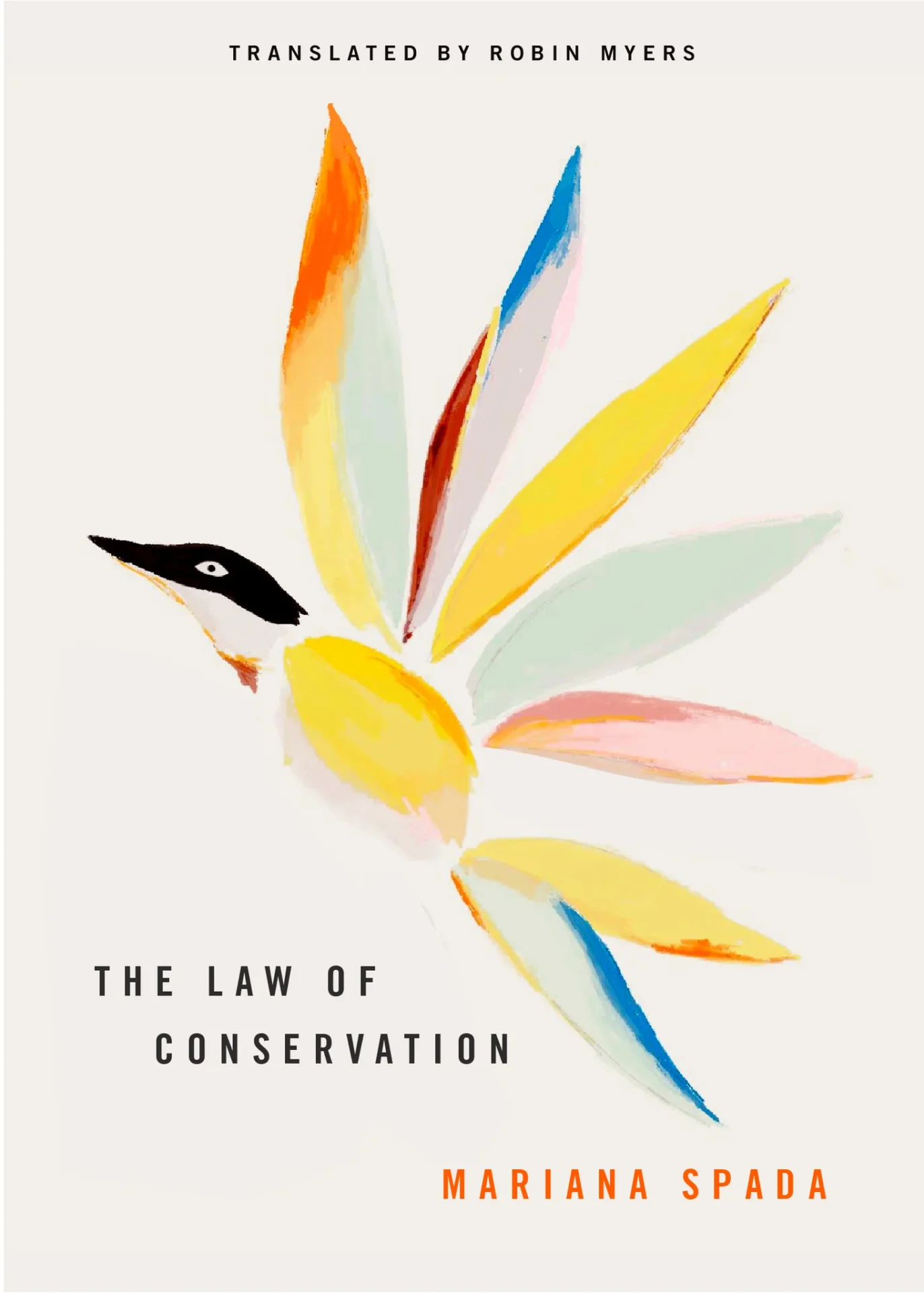I always thought Robin was a boy.
Despite what you might think, this misunderstanding did not arise from the condemnable instinct to assign a certain default gender to those who publish books—which, in my opinion, is of no great importance—nor to those who, what’s more, publish good books—which I do find relevant. The reason is simpler: in my personal dictionary, that name, so suited to heroes and artists (Batman’s sidekick comes to mind, as do the collectivist of Sherwood Forest and the late actor capable of playing histrionic and pathetic parts with the same apparent ease), never referred to a girl. I suspect such confusions may not be entirely unfamiliar to those who are born into a language in which certain names are not so common, or bear the cross of an unshakeable gender (I’ve had a similar experience with Andrea: were it not for the serendipitous fame of a certain Agassi, and a certain Bocelli, bewilderment would have gotten the better of me in these cases too…).
This mistake on my part went further than I should like to admit: while I saw Robin Myers’ name often, like a shooting star, beneath twinkling poems that friends and acquaintances shared on social media, these mentions never came with any image or personal reference to the author. It was almost as if someone had decided to wrap this name in a halo of mystery (one into which I felt somewhat ashamed to inquire). I did know some things, though: I knew they were from the United States (but did not live in their country); I knew they had a poem that talks about snow, and another pretty long one about a journey. I hardly ever memorize anything, so I surprised myself on more than one occasion, chewing over the words like a creed: “This is you, if you turn back / This is you if you don’t come back.” One evening after work, I stopped by Gambito de Alfil, a bookstore that’s caddy-corner from the University of Buenos Aires School of Philosophy and Letters, inside which (thankfully) disorder is still tolerated, allowing for happy discoveries. I had not been rummaging for long when the stain of a black bird called my attention from the cover of a slim book on top of one of the piles. I bought Tener, and then the mystery was solved: Robin was a girl.
Two years after that discovery, things had changed in my life. To mention just one such thing, I was no longer living in Buenos Aires. Nonetheless, one of my favorite presses from the city had decided to publish my first book, and a well-timed trip meant I was able to attend the launch. Time unfolds and bunches up in mysterious and, sometimes, fortuitous ways: on that same trip, a few hours before boarding the plane back to Barcelona, at a table in the Los Galgos café, I met the extraordinary poet Daniel Lipara (we had seen each other for the first time at the book presentation, actually, but our talk before that flight was our first real conversation). We talked, as is to be expected of two people turning the dial of a budding friendship, about authors we admire, including Robin (I had already read everything of hers I could get my hands on). After talking for a long time, now friends, Daniel and I set out walking down Corrientes toward the city center. I know it was December 10, because we had a new president in Argentina, and the people (or a great many of them, at least) were happy. When we reached the corner of Carlos Pellegrini, we bid each other farewell. Two days later, after stopping off at home in Spain, I was in London for work. The rituals of electoral rotation seemed to have me in their grip: as I watched the smug, triumphant, grin of Boris Johnson come across the TV screen, alongside friends and colleagues and with the aid and comfort of alcohol, there appeared in my inbox a message from Robin. To my absolute disbelief, she said she had enjoyed my book (which our mutual friend Ezequiel Zaidenwerg, a key player in all this business, had given to her) and that, with my permission, she would like to translate it.1
In an article from 1926, Jorge Luis Borges draws a distinction between what he sees as the two major premises that guide the translator’s craft. On the one hand, what he calls the romantic translator would go to great lengths to maintain absolute reverence to the original text, generating what might be called a linguistic carbon copy of every twist and detail, while the classical translator would opt instead to recreate, in the target language, not the sacrosanct clockwork of a source text, but rather something more akin to the experience brought about by the original. In the former case, the translator’s role is limited almost to that of copyist, or a sort of medium, since the original text is presumed to be unimprovable; in the latter, the one who tackles the task ends up offering something new to the world, and, on lucky days, will even surpass that which she seeks to recreate. Suffice it to say, a century after this essay’s publication, that Borges considered the first path, if not mistaken in its principles, then inferior in its results. The translator—perhaps because her craft implies putting together a puzzle whose pieces, as is already known, will never fit together perfectly—perceives that language is a system more of approximations than of equivalencies. Consciousness of this fact, which might depress the odd Benjaminian, opens the door—for those who wish to pass through it—to countless possibilities. To translate is, in a lateral and guided (but no less outright) way, to write, plain and simple.
When one is being translated, it is often unsettling to notice how the text itself is rebuilt in the bosom of an alien frame of reference, becoming something else that, nonetheless, is not entirely something else, to such an extent that it is hard not to wonder what kind of reverse engineering gave rise to certain decisions and inspired certain conclusions. When Robin shared with me the first draft of her versions of The Law of Conservation and I discerned in them a musicality and rhythm all their own, different and at the same time not unrecognizable, my first impression was that of reading a more precise, perhaps improved version of what I had attempted myself. Of course, this impression was the product of a number of factors: my rather limited knowledge of English, the novelty of taking part in the process, the excitement (and the childish vanity) of reading versions of my poems made by someone I admire, etc. Later, that initial bedazzlement gave way to collaboration, and I came to understand that, through this back and forth of comments on a Word document, of video calls, of emails and revisions, something new was being born into the world.
When Robin approaches a text, she has a remarkable ability to detect, as if in an inverted mirror, layers of meaning that the author herself did not perceive, and that she, in her reading, reveals, illuminates, and transforms. This sort of teamwork can give rise to a particular kind of intellectual intimacy, and Robin has the gift of knowing how to build a conducive space such that this intimacy should develop as fruitfully as possible. It is hard for such complicity not to evolve into some kind of friendship, since friendship, like translation, demands joint effort at interpretation, recreation, and respect. Would it sound strange to say that years later, when I met Robin in person, I felt like I was hugging an old friend?
Someone once told me (and I couldn’t agree more) that translation is an act done less to the source language and more to what’s commonly called the native language, one’s own.2 For example, a Spanish-speaker who translates, let’s say, from the Russian does not enrich their knowledge of this latter language as much as their knowledge of their own, for it is in Spanish where they will go searching, painstakingly, for the nugget of meaning that comes closest to what the original text would express had it been born in Spanish. We tend to think our own language lays down the rules of the translation process, but this idea is simplistic at best and, at worst, inaccurate. To direct your most painstaking attention toward your own language is more difficult that directing it toward another, since in the latter case our ignorance, being more evident, invites caution, while in the former, owing perhaps to its immediacy and apparent transparency, the materiality of words settles like an invisible layer over things, and prying this layer off them requires greater effort, with curiosity, courage, and suspicion. If one conceives of translation this way, it is no surprise that good poets are often—as in Robin’s case—the best translators.
Translated by Arthur Malcolm Dixon

1 Robin’s case is curious, since her poetry is perhaps more widely read by Spanish-speakers—often through extraordinary translations by Ezequiel, whom Myers translates in turn—than by readers of her own language, among whom she seems to be recognized primarily as a translator.
2 This, of course, goes for cases in which the translator considers only one of the two languages at hand in the translation process to be their “native” tongue. There are many cases of translators who know two, three, or even more languages that could fit this definition. Likewise, one’s “first language” is not necessarily the language with which one remains most intimate and familiar.



